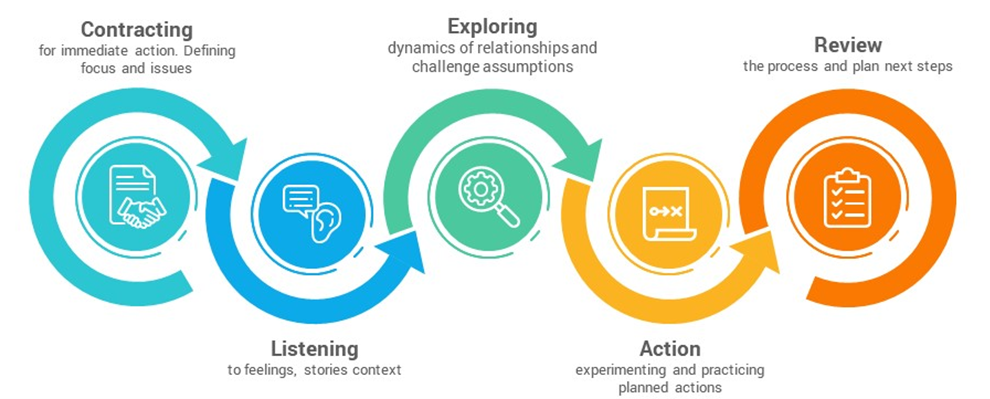People Management: What Every Manager Needs to Know about Recruiting and Hiring
Written by Don Ford on October 4, 2023

Management in a complex, changing world
In today’s competitive business landscape, recruiting and hiring top talent is more critical than ever. As a manager, your ability to build a high-performing team can significantly impact your own and your organization’s success. To excel in this endeavor, it’s essential to understand the nuances of recruitment and hiring. In this blog, we will explore what managers need to know about the recruitment and hiring process to make informed decisions and build a stellar team.
- Define Clear Job Requirements:
The recruitment process begins with a crystal-clear understanding of the job requirements. Before you start looking for candidates, work with your HR department to outline the specific skills, qualifications, and experience needed for the role. Capture these in a detailed job description. A compelling job description not only lists the responsibilities of the position but also highlights the company culture, mission, and values. A well-written job description can attract candidates who align with your organization’s goals and ethos. This step will serve as the foundation for your recruitment strategy.
- Leverage Multiple Sourcing Channels:
Don’t limit your search to just one channel. Utilize various sourcing methods such as job boards, social media, employee referrals, job fairs and recruitment agencies to cast a wide net. Diversifying your sources increases your chances of finding the best-fit candidates, especially in today’s competitive labor market.
- Implement Structured Interviews:
Structured interviews with predetermined questions help ensure consistency and fairness throughout the hiring process. Develop a list of questions that assess both technical competence and cultural fit. Use behavioral questions to gauge how candidates have handled past challenges. You should ask prospects to share examples from their past about how they have overcome difficulties and solved problems.
While technical skills are crucial, don’t underestimate the importance of interperonal skills and emotional intelligence. Effective communication, teamwork, adaptability, resilience and problem-solving abilities are equally vital for a candidate’s success in any role.
- Evaluate Cultural Fit:
Hiring a candidate who aligns with your company culture is essential for long-term success. Assessing cultural fit involves looking beyond skills and qualifications and considering how well a candidate’s values and personality mesh with your organization’s ethos. Ask questions about candidates’ career goals and factors contributing to their job satisfaction. Consider whether the candidate would be happy working for you and your firm.
- Be Transparent and Communicative:
Effective communication is key to building trust with candidates. Keep them informed about the status of their application, and provide feedback after interviews. Even if a candidate isn’t the right fit, a positive candidate experience can enhance your employer brand and make you a desirable choice for future candidates.
- Consider Diversity and Inclusion:
Diverse teams are more innovative and better equipped to tackle complex challenges. Make diversity and inclusion a priority in your hiring process. Actively seek out candidates from underrepresented backgrounds and create an inclusive interview environment. Consider candidates who don’t possess the typical background you’ve hired in the past if they appear to have the knowledge and skills to perform the work.
- Conduct Background Checks:
Protect your organization by conducting thorough background checks on potential hires. This step can help you uncover any red flags and ensure the candidate’s qualifications and credentials are accurate. Talk to references and past employers if possible. Criminal background checks may be necessary for security-sensitve positions.
- Offer Competitive Compensation:
Salary and benefits packages must be competitive to attract top talent. Research compensation standards in your labor market and ensure your offers align with market rates. Be prepared to negotiate and accommodate reasonable requests. If you can offer remote work, even partially, you will broaden your reach for qualified candidates.
- Onboarding and Integration:
Once you’ve selected the right candidate, the onboarding process is crucial. Provide comprehensive training and support to help new hires integrate seamlessly into the team and understand their role. Besides new hire orientation, consider using mentoring or coaching to ensure new employees get up to speed quickly.
- Continuous Improvement:
Recruitment and hiring are not one-time events but an ongoing process. Continuously evaluate your recruitment strategies and adapt them as needed to stay competitive and meet your organization’s evolving needs.
In conclusion, effective recruitment and hiring are essential for managers aiming to build high-performing teams. By understanding and implementing these key principles, you can attract top talent, foster a diverse and inclusive workplace, and drive your organization toward greater success. Remember, your ability to hire the right people is a testament to your leadership and management skills, so invest the time and effort needed to excel in this critical aspect of your role.

